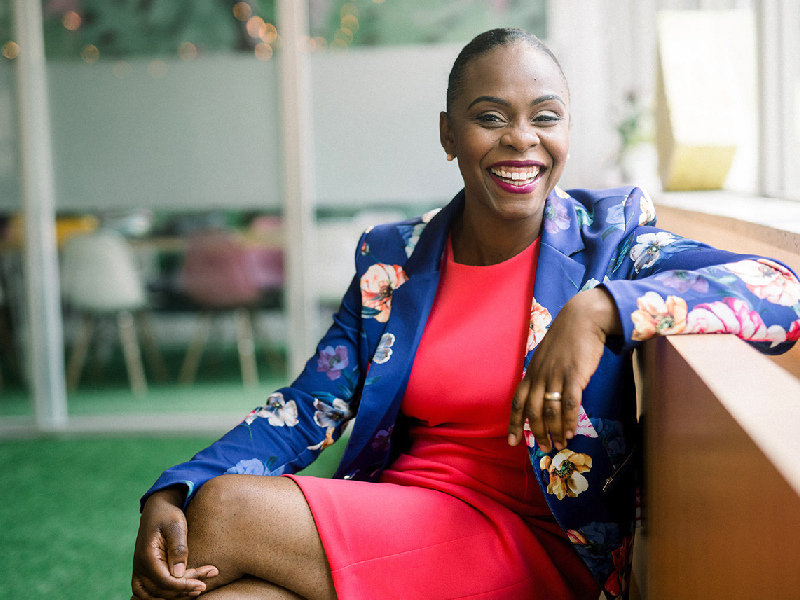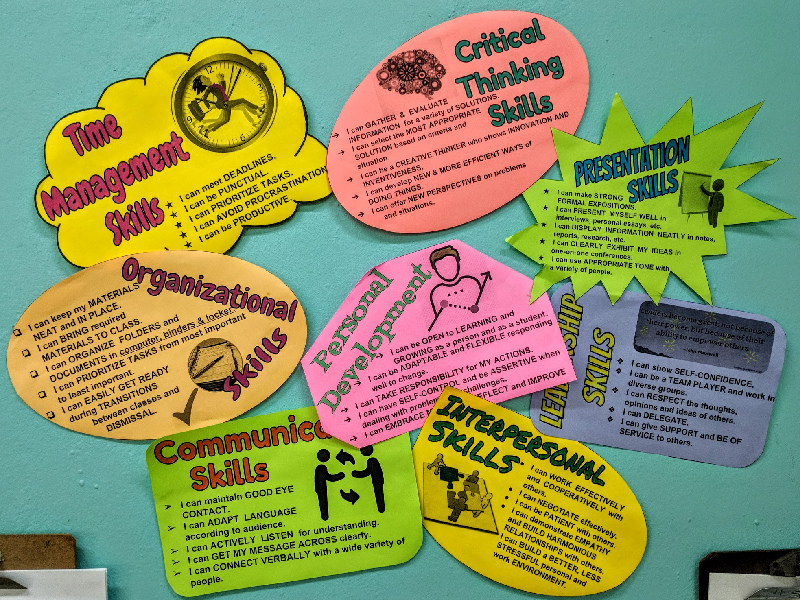|
By Carolina Salinas Are you growing tired of writing out your typical resolutions year after year, without having any fruitful results at the end of the year? Why not change your strategy and take up TEN habits to make you think and behave differently, in order to get better results for 2019. 1 - Thinking Different If you want to have better results in your life, you need to think different. I know that this sounds very easy, but when put into practice it is actually more of an uphill struggle than expected. According to Daniel Kahneman – Professor of Psychology and Public Affairs Emeritus at the Woodrow Wilson School and faculty member, Princeton University, humans have two-thought process on the go. The first one is the slow burn, which organizes our ideas to be able to access a body of experiences about our lives and reality. For instance, a driver who always takes the same route daily and knows by heart where every set of traffic lights are. On the other hand, there is rapid decision making, which we use when we take on new patterns or need to respond to emotional aspects over logical in a situation, because we do not have any previous experience. Overall, we swing between these two modes of thinking. However, thinking-fast is still dominant. Remember that in order to think differently, you need to be aware that there will always be both an intellectual and emotional aspect in our lives that will prevail, and that sometimes logic will govern over these feelings or the other way around. 2 - Trust Unsafe Decisions In his book Whatever You Think, Think the Opposite, Paul Arden wrote that getting what you want means making the decisions you need to make, in order to get what you want. He added that always making the safe decision is dull, predictable and leads you nowhere new. For this reason, it is necessary to trust unsafe decisions. Ones that will lead you to think differently, and direct your life to places where others only dream of being. Every decision has its own path, however, the “unsafe” or “bad” decisions, as we call them, can take you to unimaginable places and lead you to learn more about various new things and yourself. 3. Act, Instead of Dreaming A lot of us hope to one day buy the house of our dreams, but can't afford it precisely because it is the house of our ‘dreams’. Nevertheless, we can adjust our expectations and start acting to gain money or ask for a bank loan to purchase a reasonably priced property. Therefore, any dream or desire you have, do not forget it and keep it your mind. Start by taking baby steps to make it come true or in other words, put into practice your ideas. 4. Talk About Ideas and not About People “Great minds discuss ideas. Average minds discuss events. Small minds discuss people” – Eleanor Roosevelt. So, what does this mean? Well, to talk about ideas means to understand what kind of messages are behind an event. Have a look beyond what is provided to us, and find solutions to improve the world. On the other hand, people who like discussing events are typically the ones who love reading news, facts and figures. Discussing occurrences means to converse about acts happening around the world. Finally, ‘small minds’ that talk about people are those that address gossip in a negative manner and do not contribute with any positive aspects of it to their lives or to the world. 5. Run With What you've Got and Stop Perfecting it! A wise person once told me that I should stop searching for perfection in various aspects of my life, such as a constant search for writing or speaking well in English, because it’s my second language. Instead, I was told to work with what I have and that my expertise will improve over the years with practice. Whatever you decide to do, run with it and work with the skills you have. Don’t be so hard on yourself and tell yourself that one day you will dominate whatever it is you are working towards, and before you know it you will have perfected it. 6. Accept Honest Criticism to Improve Your Work Learn to accept constructive criticism so that you can enhance your work. They say the truth always hurts; however, in the long run it is better than a pat on the back, as Paul Arden says in his book Whatever You Think, Think the Opposite. I would dare to say that most, or all of us, are used to looking for what we want to hear, particularly when it’s time to talk about our work. We don’t want to hear that our work is a complete disaster, we want people to sweeten their opinions. Nevertheless, this behaviour will not allow you to learn or force you to give the best of your work. 7. Learn to Listen Carefully In a world where more and more of state-of-the-art technology and social networks play an important role in the field of communication, ironically less and less time is devoted to listening to the others. When listening to your peers, it’s pivotal that you look at your speaker and maintain eye contact. Once you have done this, be attentive, but relaxed at the same time. In other words, be present, give your attention. Also, don’t jump to conclusions. Avoid judgement and have an open mindset. In addition, do not interrupt or impose your solutions; let the person talking explain their ideas. Put yourself in your speaker´s shoes to understand where they’re coming from. 8. Be the Best Version of You The way you present yourself to people, is how others will value you. Always be the best version of you. For example, launch a personal website where you can maintain an online presence of yourself. Use this outlet to showcase your projects, and show the world your creativity, as well as part of yourself. 9. Focus On What You Want in Life (Have a GOAL) Staying focused on one’s goals has always been a difficult task, but the first step towards making that easier is to write them out on a piece of paper. Then, manage your time, splitting your daily activities by completing the most important tasks first. Focus on long-term strategic goals. Stay away from activities that lead you to wasting your time, such as an excessive use of social networks or watching television for long periods of time. Subsequently, construct and follow a plan strictly, avoiding procrastination at all costs. Analyze your progress on a daily basis with the purpose of measuring your performance. Finally, implement motivational techniques, such as listening to music, watching motivational videos and exercising, among other activities to help keep you determined. 10. Try a New Activity If you don’t have a post-secondary degree or have recently been rejected from a job you applied to, it’s not the end of the world. There are plenty of free activities you can use to your benefit such as educational workshops, lectures, conferences or exhibitions that can be very useful. Let people get to know you. Having done this, not only will you be learning new things, but you will also be growing your social circle, networking and gaining new life experiences as well. Eventually, you will be able to be accepted into the job you have always wanted.
Life is too short, to say the least. It’s important to make the most of our time on this earth. Hence, you have to invest our energy into creating positive habits that can make you a better human being. |
Recent Posts
|
|
GET THE APP!
Listen to VIBE 105 anywhere you go!
|
OUR STATION
|
TUNE IN RADIO
|
STAY CONNECTED
|
Copyright © 2021 Canadian Centre for Civic Media and Arts Development Inc. Except where otherwise noted, presentation of content on this site is protected by copyright law and redistribution without consent or written permission of the sponsor is strictly prohibited.















